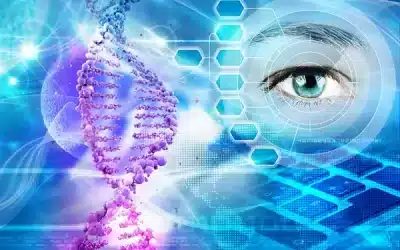
This article explores the role of biospecimen suppliers in meeting the human tissue procurement needs of three key industry players:
- Large pharmaceutical companies
- Large in vitro diagnostics (IVD) companies
- Small and medium-sized enterprises (SMEs) in healthcare biotechnology
We examine the differences between these players and highlight the unique challenges small biotech companies face in biospecimen procurement.
Biospecimen Suppliers for Large Pharmaceutical Companies
Large pharmaceutical companies rely heavily on biospecimen suppliers to support drug discovery and clinical trials. Biospecimen procurement is critical for testing the efficacy of new drug candidates and assessing potential side effects (Mackenzie, 2014).
Although many pharmaceutical companies maintain their own biobanks, regulatory limitations tied to informed consent often restrict the use of these samples (Lindpaintner, 2011). Therefore, biospecimen providers play a crucial role in supplementing pharma’s need for high-quality samples.
Pharma companies typically turn to commercial biospecimen sourcing due to their larger budgets. They also collaborate with academic biobanks, either through direct supply agreements or research partnerships. However, these collaborations often face obstacles:
- Difficulty locating appropriate biobanks.
- Lengthy contract negotiations, which do not always align with the fast-moving needs of the pharmaceutical industry.
- Academic institutions often require co-publication or intellectual property sharing.
- Large pharmaceutical companies often request broad, large-volume samples with detailed donor information, making these requests hard to fulfill (Mackenzie, 2014).
Biospecimen Suppliers for Large In Vitro Diagnostics (IVD) Companies
Large IVD companies, such as Roche Diagnostics, Abbott Diagnostics, Siemens, and others, also depend on biospecimen providers. Their primary need is for biospecimen procurement to drive biomarker discovery and validation.
Unlike pharmaceutical companies, IVD firms may not have direct access to clinical trial samples. Instead, they rely on biospecimen suppliers from academic biobanks or commercial providers. They may also establish partnerships with pharmaceutical companies for companion diagnostics development. In some cases, IVD companies are acquired by pharmaceutical companies to streamline biospecimen sourcing. For example, Roche’s acquisition of Ventana is a notable case.
Biospecimen Suppliers for SMEs in Healthcare Biotechnology
Small and medium-sized enterprises (SMEs) in healthcare biotechnology also require access to biospecimen providers to develop new drugs and diagnostics. SMEs, defined by the European Union as companies with fewer than 250 employees and an annual revenue under EUR 50 million, play an important role in advancing early-stage research projects that can be later commercialized (Mackenzie, 2014).
The Importance of SMEs
SMEs are crucial to pharmaceutical innovation. According to the European Innovative Medicines Initiative (IMI), “SMEs are key players in the European pharmaceutical research and development landscape, and we strongly encourage their participation in our projects.”
Challenges SMEs Face with Biospecimen Procurement
Despite their importance, SMEs encounter significant difficulties in biospecimen procurement. The UK Medicines Discovery Catapult and Bioindustry Association’s 2018 report underscored this challenge:
“Over 80% of SMEs surveyed agreed that access to biosamples is critical for commercial development. However, as many as 80% found access to UK samples unexpectedly difficult, with 75% having to import samples from abroad.”
These challenges are not unique to the UK. Globally, small biotech companies face issues in finding reliable biospecimen suppliers. SMEs lack the large budgets, dedicated procurement teams, and established networks that big pharmaceutical companies often have. Additionally, early-stage biotechs generally do not have direct access to clinical trials, which limits their biospecimen sourcing options.
Solutions for Improving Biospecimen Access for SMEs
Initiatives such as Biosample Hub aim to address the biospecimen procurement challenges SMEs face, making it easier for them to access the vital biosamples they need for research and development.
References
- Lindpaintner K. Biomarkers: call on industry to share. Nature. 2011 Feb 10;470(7333):175. doi: 10.1038/470175d. PMID: 21307922.
- Mackenzie F. Biobanking trends, challenges, and opportunities. Pathobiology. 2014;81(5-6):245-251. doi: 10.1159/000369825. Epub 2015 Mar 16. PMID: 25792213.
Other posts on this Biosample Hub blog include:
- Why Academic / Hospital Biobanks Should Provide Biosamples to Industry
- Ensuring Public Support For Biobank Cooperation With Industry
- The Main Actors Providing Biosamples To Industry
- Biosample Needs of Different Industry Players
- Acceptable Transactions in Biobanking
- What is Commodification?
- Why Biobank Access Policies Should Be Publicly Available
- Biospecimen Provenance: What Researchers Need To Know

